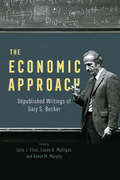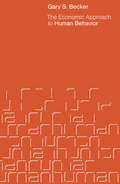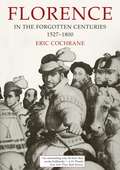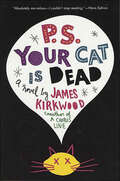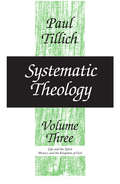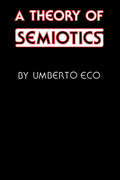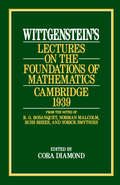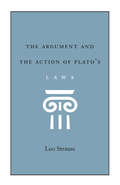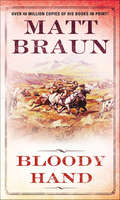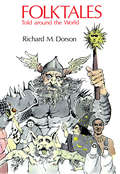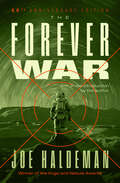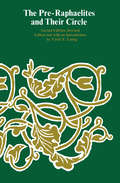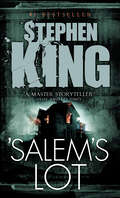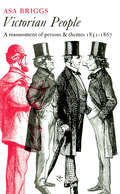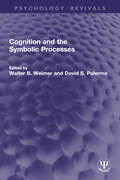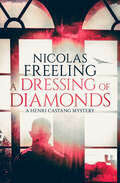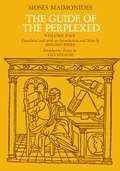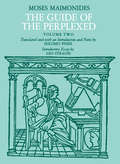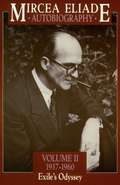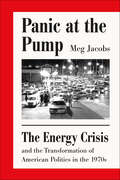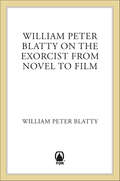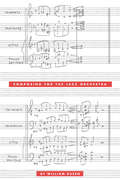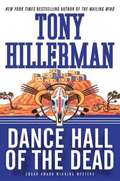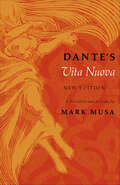- Table View
- List View
The Economic Approach: Unpublished Writings of Gary S. Becker
by Gary S. Becker Edward L. GlaeserA revealing collection from the intellectual titan whose work shaped the modern world.As an economist and public intellectual, Gary S. Becker was a giant. The recipient of a Nobel Prize, a John Bates Clark Medal, and a Presidential Medal of Freedom, Becker is widely regarded as the greatest microeconomist in history.After forty years at the University of Chicago, Becker left a slew of unpublished writings that used an economic approach to human behavior, analyzing such topics as preference formation, rational indoctrination, income inequality, drugs and addiction, and the economics of family.These papers unveil the process and personality—direct, critical, curious—that made him a beloved figure in his field and beyond. The Economic Approach examines these extant works as a capstone to the Becker oeuvre—not because the works are perfect, but because they offer an illuminating, instructive glimpse into the machinations of an economist who wasn’t motivated by publications. Here, and throughout his works, an inquisitive spirit remains remarkable and forever resonant.
The Economic Approach to Human Behavior
by Gary S. BeckerSince his pioneering application of economic analysis to racial discrimination, Gary S. Becker has shown that an economic approach can provide a unified framework for understanding all human behavior. In a highly readable selection of essays Becker applies this approach to various aspects of human activity, including social interactions; crime and punishment; marriage, fertility, and the family; and "irrational" behavior. "Becker's highly regarded work in economics is most notable in the imaginative application of 'the economic approach' to a surprising breadth of human activity. Becker's essays over the years have inevitably inspired a surge of research activity in testimony to the richness of his insights into human activities lying 'outside' the traditionally conceived economic markets. Perhaps no economist in our time has contributed more to expanding the area of interest to economists than Becker, and a number of these thought-provoking essays are collected in this book."—Choice Gary Becker was awarded the Nobel Prize in Economic Science in 1992.
Florence in the Forgotten Centuries, 1527–1800: A History of Florence and the Florentines in the Age of the Grand Dukes
by Eric CochraneThe city of Florence has long been admired as the home of the brilliant artistic and literary achievement of the early Renaissance. But most histories of Florence go no further than the first decades of the sixteenth century. They thus give the impression that Florentine culture suddenly died with the generation of Leonardo, Machiavelli, and Andrea del Sarto. Eric Cochrane shows that the Florentines maintained their creativity long after they had lost their position as the cultural leaders of Europe. When their political philosophy and historiography ran dry, they turned to the practical problems of civil administration. When their artists finally yielded to outside influence, they turned to music and the natural sciences. Even during the darkest days of the great economic depression of the late seventeenth and early eighteenth centuries, they succeeded in preserving—almost alone in Europe—the blessings of external peace and domestic tranquility.
P.S. Your Cat Is Dead: A Novel
by James KirkwoodIt's New Year's Eve in New York City. Your best friend died in September, you've been robbed twice, your girlfriend is leaving you, you've lost your job...and the only one left to talk to is the gay burglar you've got tied up in the kitchen... P.S. your cat is dead.An instant classic upon its initial publication, P.S. Your Cat is Dead received widespread critical acclaim and near fanatical reader devotion. The stage version of the novel was equally successful and there are still over 200 new productions of it staged every year. Now, for the first time in a decade, James Kirkwood's much-loved black humor comic novel of manners and escalating disaster returns to bewitch and beguile a new generation.
Systematic Theology: Life and the Spirit History and the Kingdom of God
by Paul TillichIn this volume, the third and last of his Systematic Theology, Paul Tillich sets forth his ideas of the meaning of human life, the doctrine of the Spirit and the church, the trinitarian symbols, the relation of history to the Kingdom of God, and the eschatological symbols. He handles this subject matter with powerful conceptual ability and intellectual grace. The problem of life is ambiguity. Every process of life has its contrast within itself, thus driving man to the quest for unambiguous life or life under the impact of the Spritual Presence. The Spritual Presence conquers the negativities of religion, culture, and morality, and the symbols anticipating Eternal Life present the answer to the problem of life.
A Theory of Semiotics (Advances in Semiotics)
by Umberto Eco" . . . the greatest contribution to [semiotics] since the pioneering work of C. S. Peirce and Charles Morris." —Journal of Aesthetics and Art Criticism" . . . draws on philosophy, linguistics, sociology, anthropology and aesthetics and refers to a wide range of scholarship . . . raises many fascinating questions." —Language in Society" . . . a major contribution to the field of semiotic studies." —Robert Scholes, Journal of Aesthetics and Art Criticism" . . . the most significant text on the subject published in the English language that I know of." —Arthur Asa Berger, Journal of CommunicationEco's treatment demonstrates his mastery of the field of semiotics. It focuses on the twin problems of the doctrine of signs—communication and signification—and offers a highly original theory of sign production, including a carefully wrought typology of signs and modes of production.
Wittgenstein's Lectures on the Foundations of Mathematics, Cambridge, 1939
by Cora DiamondFor several terms at Cambridge in 1939, Ludwig Wittgenstein lectured on the philosophical foundations of mathematics. A lecture class taught by Wittgenstein, however, hardly resembled a lecture. He sat on a chair in the middle of the room, with some of the class sitting in chairs, some on the floor. He never used notes. He paused frequently, sometimes for several minutes, while he puzzled out a problem. He often asked his listeners questions and reacted to their replies. Many meetings were largely conversation. These lectures were attended by, among others, D. A. T. Gasking, J. N. Findlay, Stephen Toulmin, Alan Turing, G. H. von Wright, R. G. Bosanquet, Norman Malcolm, Rush Rhees, and Yorick Smythies. Notes taken by these last four are the basis for the thirty-one lectures in this book. The lectures covered such topics as the nature of mathematics, the distinctions between mathematical and everyday languages, the truth of mathematical propositions, consistency and contradiction in formal systems, the logicism of Frege and Russell, Platonism, identity, negation, and necessary truth. The mathematical examples used are nearly always elementary.
The Argument and the Action of Plato's Laws
by Leo StraussThe posthumous publication of The Argument and the Action of Plato's "Laws" was compiled shortly before the death of Leo Strauss in 1973. Strauss offers an insightful and instructive reading through careful probing of Plato's classic text. "Strauss's The Argument and the Action of Plato's 'Laws' reflects his interest in political thought, his dogged method of following the argument of the Laws step by step, and his vigorous defense of this dialogue's integrity in respect to the ideals of the Republic."—Cross Currents "The unique characteristics of this commentary on the Laws reflect the care and precision which were the marks of Professor Strauss's efforts to understand the complex thoughts of other men."—Allan D. Nelson, Canadian Journal of Political Science "Thorough and provocative, an important addition to Plato scholarship."—Library Journal "The major purpose of the commentary is to provide a reading of the dialogue which displays its structural arrangement and the continuity of the argument."—J. W. Dy, Bibliographical Bulletin of Philosophy "The reader of Strauss's book is indeed guided closely through the whole text."— M. J. Silverthorne, The Humanities Association Review Leo Strauss (1899-1973) was the Robert Maynard Hutchins Distinguished Service Professor Emeritus of political science at the University of Chicago.
Bloody Hand
by Matt BraunBloody HandMatt BraunHe found a people who needed his courage…Born a slave, Jim Beckwirth forged his own path to freedom as a mountain man. But when a wealthy trading company owner offered to pay him to live among the Crow Indians, Beckwirth accepted the deal—and discovered another way of life that changed him forever.He fought a battle that had to be won…Here in the Wind River Mountains, amidst blood feuds and blood brothers, he became Bloody Hand, a man sworn to take a hundred scalps—and destined to become the People's greatest warrior—in a life-or-death struggle that shaped the fate of a nation.
Folktales Told Around the World
by Richard M. DorsonAll the selections in Richard M. Dorson's Folktales Told around the World were recorded by expert collectors, and the majority of them are published here for the first time. The tales presented are told in Africa, Asia, the Middle East, Europe, North and South America, and Oceania. Unlike other collections derived in large part from literary texts, this volume meets the criteria of professional folklorists in assembling only authentic examples of folktales as they were orally told. Background information, notes on the narrators, and scholarly commentaries are provided to establish the folkloric character of the tales.
The Forever War (The Forever War Series #1)
by Joe HaldemanWinner of the Hugo and Nebula Awards: A futuristic masterpiece, &“perhaps the most important war novel written since Vietnam&” (Junot Díaz). In this novel, a landmark of science fiction that began as an MFA thesis for the Iowa Writers&’ Workshop and went on to become an award-winning classic—inspiring a play, a graphic novel, and most recently an in-development film—man has taken to the stars, and soldiers fighting the wars of the future return to Earth forever alienated from their home. Conscripted into service for the United Nations Exploratory Force, a highly trained unit built for revenge, physics student William Mandella fights for his planet light years away against the alien force known as the Taurans. &“Mandella&’s attempt to survive and remain human in the face of an absurd, almost endless war is harrowing, hilarious, heartbreaking, and true,&” says Pulitzer Prize–winning novelist Junot Díaz—and because of the relative passage of time when one travels at incredibly high speed, the Earth Mandella returns to after his two-year experience has progressed decades and is foreign to him in disturbing ways. Based in part on the author&’s experiences in Vietnam, The Forever War is regarded as one of the greatest military science fiction novels ever written, capturing the alienation that servicemen and women experience even now upon returning home from battle. It shines a light not only on the culture of the 1970s in which it was written, but also on our potential future. &“To say that The Forever War is the best science fiction war novel ever written is to damn it with faint praise. It is . . . as fine and woundingly genuine a war story as any I&’ve read&” (William Gibson). This ebook features an illustrated biography of Joe Haldeman including rare images from the author&’s personal collection.
The Pre-Raphaelites and Their Circle
by Cecil Y. LangThis useful volume presents the major works of the five leading Pre-Raphaelite poets. Foremost in the collection, and included in their entirety are D. G. Rossetti's The House of Life, C. G. Rossetti's "Monna Innominata," William Morris's "Defence of Guenevere," Swinburne's Atalanta in Calydon, and Meredith's "Modern Love." Complementing these major poems is a fine, generous selection of the poets' shorter pieces that are typical of their work as a whole. For this second edition, Cecil Lang has substituted two early Swinburne poems, "The Leper" and "Anactoria," for Fitzgerald's The Rubáiyát of Omar Khayyám. These poems, which the editor describes as "shocking," show a new aspect of Swinburne not discussed previously. Lang's Introduction describes briefly the founding of the Pre-Raphaelite Brotherhood, discusses each of the Pre-Raphaelite poets, both individually and in relation to the others, and grapples with the questions of definition of Pre-Raphaelitism and the similarities between its painting and poetry. The book is appropriately illustrated with thirty-two works by D. G. Rossetti, John Ruskin, William H. Hunt, and other Pre-Raphaelite artists. This is the only anthology available that provides a representative selection of the work of these important poets. It will be indispensable to students of Victorian poetry and appreciated by readers interested in the Pre-Raphaelites.
'Salem's Lot
by Stephen King#1 BESTSELLER • Soon to be a new major motion picture • Ben Mears has returned to Jerusalem&’s Lot in hopes that exploring the history of the Marsten House, an old mansion long the subject of rumor and speculation, will help him cast out his personal devils and provide inspiration for his new book. "A master storyteller." —The Los Angeles TimesWhen two young boys venture into the woods, and only one returns alive, Mears begins to realize that something sinister is at work. In fact, his hometown is under siege from forces of darkness far beyond his imagination. And only he, with a small group of allies, can hope to contain the evil that is growing within the borders of this small New England town.With this, his second novel, Stephen King established himself as an indisputable master of American horror, able to transform the old conceits of the genre into something fresh and all the more frightening for taking place in a familiar, idyllic locale.
Victorian People: A Reassessment of Persons and Themes, 1851–1867
by Asa BriggsThis text looks at the people, ideas and events between the Great Exhibition of 1851 and the Second Reform Act of 1867. From "John Arthur Roebuck and the Crimean War", and "Samuel Smiles and the Gospel of Work" to "Thomas Hughes and the Public Schools" and "Benjanmin Disraeli and the Leap in the Dark", Asa Briggs provides an assessment of Victorian achievements; and in doing so conjures up an enviable picture of the progress and independence of the last century. "For expounding this theme, this interaction of event and personality, Mr. Briggs is abundantly and happily endowed. He is always readable, often amusing, never facetious. He is widely read and widely interested. He has a sound historic judgment, and an unfailing sense for what is significant in the historic sequence and what is merely topical. . . . Above all, he is in sympathy with the age of which he is writing."—Times Literary Supplement
Cognition and the Symbolic Processes (Psychology Revivals)
by David S. Palermo Walter B. WeimerOriginally published in 1974 and taking the revolution in psycholinguistics and cognitive psychology as a point of departure, this book summarizes the lessons learned from past attempts to construct a psychology of the higher mental processes. Even more importantly, it crystallizes specific directives and research proposals that show where cognitive psychology ought to go in the future. The relationship of learning theory, linguistics, and perception to the broad field of cognition and the nature of mind and knowledge are examined in detail. Today it can be read in its historical context.
A Dressing of Diamonds (The Henri Castang Mysteries)
by Nicolas FreelingUnorthodox French detective Henri Castang investigates a kidnapping in this police procedural from an Edgar award–winning British crime novelist.When the daughter of a prominent official goes missing, Inspector Henri Castang is certain the abduction is an act of revenge against the child’s mother. Not only is Collette Delavigne one of France’s youngest judges, but as a magistrate of crimes involving children, Delavigne has certainly aroused a few enemies. But how to find the perpetrator in a sea of cases that could easily have inspired a vengeful kidnapping? All Castang knows for sure is that he needs to act fast, in case the kidnapper has murder on his mind . . . Praise for Nicolas Freeling:“In depth of characterization, command of language and breadth of thought, Mr. Freeling has few peers when it comes to the international policier.” —The New York Times“Nicolas Freeling . . . liberated the detective story from page-turning puzzler into a critique of society and an investigation of character.” —The Daily Telegraph“Freeling rewards with his oblique, subtly comic style.” —Publishers Weekly“Freeling writes like no one. . . . He is one of the most literate and idiosyncratic of crime writers.” —Los Angeles Times
The Guide of the Perplexed, Volume 1
by Moses MaimonidesThis monument of rabbinical exegesis written at the end of the twelfth century has exerted an immense and continuing influence upon Jewish thought. Its aim is to liberate people from the tormenting perplexities arising from their understanding of the Bible according only to its literal meaning. This edition contains extensive introductions by Shlomo Pines and Leo Strauss, a leading authority on Maimonides.
The Guide of the Perplexed, Volume 2
by Moses MaimonidesThis monument of rabbinical exegesis written at the end of the twelfth century has exerted an immense and continuing influence upon Jewish thought. Its aim is to liberate people from the tormenting perplexities arising from their understanding of the Bible according only to its literal meaning. This edition contains extensive introductions by Shlomo Pines and Leo Strauss, a leading authority on Maimonides.
Mircea Eliade: Exile's Odyssey, 1937–1960
by Mircea Eliade"Here finally are Eliade's memoirs of the first thirty years of his life in Mac Linscott Rickett's crisp and lucid English translation. They present a fascinating account of the early development of a Renaissance talent, expressed in everything from daily and periodical journalism, realistic and fantastic fiction, and general nonfiction works to distinguished contributions to the history of religions. Autobiography follows an apparently amazingly candid report of this remarkable man's progression from a mischievous street urchin and literary prodigy, through his various love affairs, a decisive and traumatic Indian sojourn, and active, brilliant participation in pre-World War II Romanian cultural life."—Seymour Cain, Religious Studies Review
Panic at the Pump: The Energy Crisis and the Transformation of American Politics in the 1970s
by Meg JacobsAn authoritative history of the energy crises of the 1970s and the world they wroughtIn 1973, the Arab OPEC cartel banned the export of oil to the United States, sending prices and tempers rising across the country. Dark Christmas trees, lowered thermostats, empty gas tanks, and the new fifty-five-mile-per-hour speed limit all suggested that America was a nation in decline. “Don’t be fuelish” became the national motto. Though the embargo would end the following year, it introduced a new kind of insecurity into American life—an insecurity that would only intensify when the Iranian Revolution led to new shortages at the end of the decade.As Meg Jacobs shows, the oil crisis had a decisive impact on American politics. If Vietnam and Watergate taught us that our government lied, the energy crisis taught us that our government didn’t work. Presidents Nixon, Ford, and Carter promoted ambitious energy policies that were meant to rally the nation and end its dependence on foreign oil, but their efforts came to naught. The Democratic Party was divided, with older New Deal liberals who prized access to affordable energy squaring off against young environmentalists who pushed for conservation. Meanwhile, conservative Republicans argued that there would be no shortages at all if the government got out of the way and let the market work. The result was a political stalemate and panic across the country: miles-long gas lines, Big Oil conspiracy theories, even violent strikes by truckers.Jacobs concludes that the energy crisis of the 1970s became, for many Americans, an object lesson in the limitations of governmental power. Washington proved unable to design an effective national energy policy, and the result was a mounting skepticism about government intervention that set the stage for the rise of Reaganism. She offers lively portraits of key figures, from Nixon and Carter to the zealous energy czar William Simon and the young Donald Rumsfeld and Dick Cheney. Jacobs’s absorbing chronicle ends with the 1991 Gulf War, when President George H. W. Bush sent troops to protect the free flow of oil in the Persian Gulf. It was a failure of domestic policy at home that helped precipitate military action abroad. As we face the repercussions of a changing climate, a volatile oil market, and continued turmoil in the Middle East, Panic at the Pump is a necessary and lively account of a formative period in American political history.
William Peter Blatty on The Exorcist from Novel to Film: From Novel To Screen
by William Peter BlattyIn William Peter Blatty on The Exorcist: From Novel to Film, the New York Times bestselling author reveals the real-life incidents that inspired his famous novel and how it evolved into the groundbreaking Academy Award-winning screenplay of the 1973 groundbreaking William Friedkin film.Featuring the original, controversial ending of the novel, and both the first draft of the screenplay and the shooting script, Blatty presents his behind-the-scenes commentary on the differences between the book and screenplays, detailing the specific reasons why the changes were made for the final cut. This is the true story of the making of The Exorcist, an insider's guide to Hollywood in one of its most creative eras. Includes photographsAt the Publisher's request, this title is being sold without Digital Rights Management Software (DRM) applied.
Composing for the Jazz Orchestra
by William Russo"Although it will be of primary interest to those who are engaged in composition themselves, [this] book is also recommended for readers who may wish to gain further insight into just what makes jazz composition so different from traditional approaches."—Malcolm Bessom, The Music Magazine
Concrete Island: A Novel
by J. G. BallardOn a day in April, just after three o'clock in the afternoon, Robert Maitland's car crashes over the concrete parapet of a high-speed highway onto the island below, where he is injured and, finally, trapped. What begins as an almost ludicrous predicament soon turns into horror as Maitland-a wickedly modern Robinson Crusoe-realizes that, despite evidence of other inhabitants, this doomed terrain has become a mirror of his own mind. Seeking the dark outer rim of the everyday, Ballard weaves private catastrophe into an intensely specular allegory in Concrete Island.
Dance Hall of the Dead (A Leaphorn and Chee Novel #2)
by Tony HillermanDon’t miss the TV series, Dark Winds, based on the Leaphorn, Chee, & Manuelito novels, now on AMC and AMC+! The Edgar-Award winning second novel in New York Times bestselling author Tony Hillerman’s bestselling and highly acclaimed Leaphorn and Chee series“Hillerman is a wonderful storyteller.”—New York Times Book ReviewTwo Native American boys have vanished into thin air, leaving a pool of blood behind them. Lieutenant Joe Leaphorn of the Navajo Tribal Police has no choice but to suspect the very worst, since the blood that stains the parched New Mexico ground once flowed through the veins of one of the missing, a young Zuñi. But his investigation into a terrible crime is being complicated by an important archaeological dig . . . and a steel hypodermic needle. And the unique laws and sacred religious rites of the Zuñi people are throwing impassable roadblocks in Leaphorn’s already twisted path, enabling a craven murderer to elude justice or, worse still, kill again.
Dante's Vita Nuova: A Translation and an Essay
by Dante AlighieriIn this new edition Musa views Dante's intention as one of cruel and comic commentary on the shallowness and self-pity of his protagonist, who only occasionally glimpses the true nature of love. ". . . the explication de texte which accompanies [Musa's] translation is instructively novel, always admirable. . . . This present work offers English readers a lengthy appraisal which should figure in future scholarly discussions." —Choice
